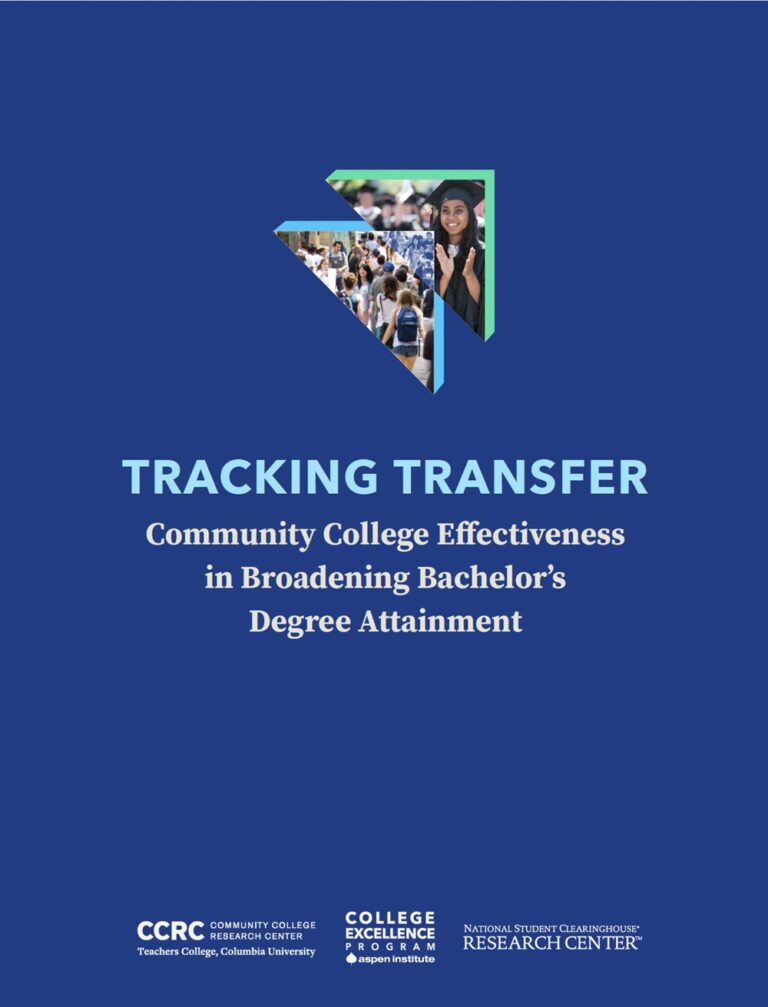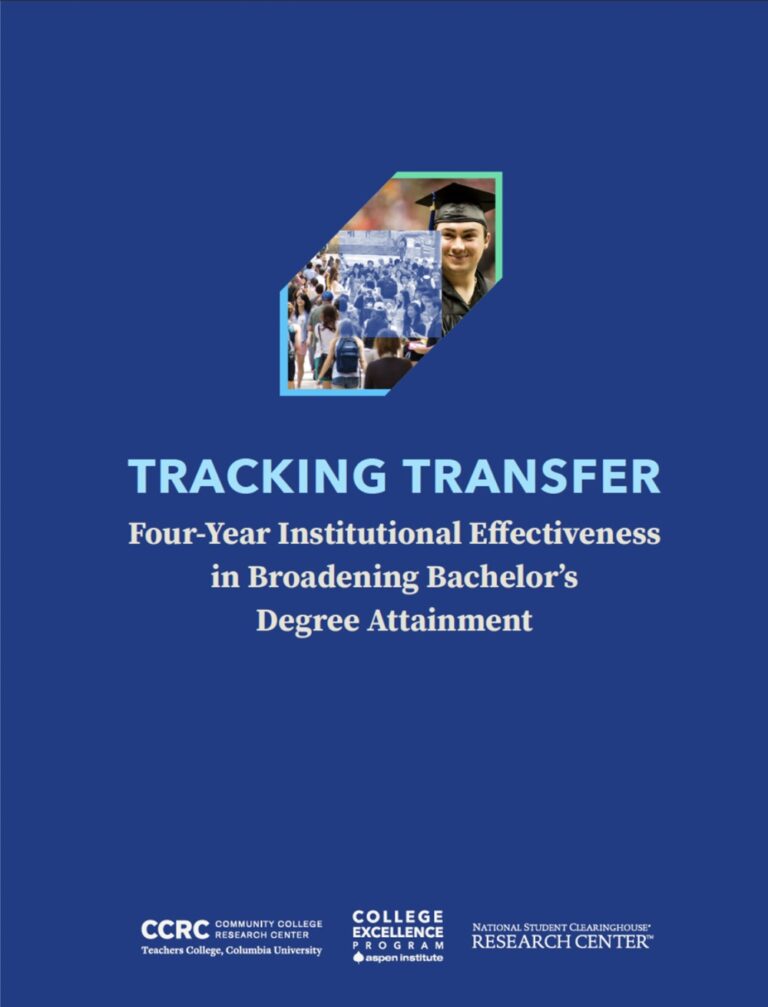Transfer Playbook and Tracking Transfer
Nearly 80 percent of community college students want to transfer and earn a bachelor's degree—yet just 16 percent do so after six years. This is a modest increase from 14 percent in 2016, the year of the first Tracking Transfer report.
The 2024 edition of Tracking Transfer features two companion reports—one focused on community colleges and the other on four-year institutions—and is a call to action to improve ineffective and inefficient transfer pathways in higher education. Each report offers a state-by-state breakdown of transfer outcomes, as well as recommendations to improve transfer practices and bachelor’s degree attainment rates. The Community College Research Center and the Aspen Institute College Excellence Program provide detailed data on how states serve low-income, Black, Hispanic, and older students. They highlight steps that colleges, community leaders, and policymakers can take to improve completion rates and help students effectively reach their goals.
The 2024 edition of Tracking Transfer features two companion reports—one focused on community colleges and the other on four-year institutions—and is a call to action to improve ineffective and inefficient transfer pathways in higher education. Each report offers a state-by-state breakdown of transfer outcomes, as well as recommendations to improve transfer practices and bachelor’s degree attainment rates. The Community College Research Center and the Aspen Institute College Excellence Program provide detailed data on how states serve low-income, Black, Hispanic, and older students. They highlight steps that colleges, community leaders, and policymakers can take to improve completion rates and help students effectively reach their goals.
The reports provide the first-ever state-by-state transfer outcomes disaggregated by student race/ethnicity, income, and age. This dashboard displays the state-by-state results presented in the 2024 Tracking Transfer reports.
Introducing The Next Phase of Transfer
In the fall of 2022, CCRC and Aspen embarked on a new project to deliver the second edition of the Transfer Playbook, made possible by improvements in national data collection. With new data from the National Student Clearinghouse, our teams have published an updated version of Tracking Transfer with new, national and state-level measures of effectiveness disaggregated by race/ethnicity and income. Later this year, we will release the second edition of the Transfer Playbook, which will amplify best practices from colleges that are delivering excellent transfer outcomes for students of color and low-income students.
As a part of these projects, we’re excited to work in North Carolina (in collaboration with the North Carolina State University’s Belk Center for Community College Leadership) and California to advance stronger and more equitable transfer outcomes. Stay tuned for more updates as we prepare to release the second edition of the Transfer Playbook later this year.
As we identify the colleges delivering excellent and equitable transfer outcomes nationwide, we want to hear from you now about how you’re expanding the transfer pipeline for more students. What programs, initiatives, or commitments have you implemented to transform the trajectories of community college transfers? Share them with us today!
Additional Resources
The (50) State(s) of Transfer Data
Community College
Self-Assessment Tool
Four-Year
Self-Assessment Tool
Transfer Playbook
2016
Tracking Transfer
2016
Our work on transfer is made possible by generous support from
Ascendium, Bill & Melinda Gates Foundation, College Futures Foundation, ECMC Foundation, John M. Belk Endowment, Joyce Foundation, and the Kresge Foundation.
Ascendium, Bill & Melinda Gates Foundation, College Futures Foundation, ECMC Foundation, John M. Belk Endowment, Joyce Foundation, and the Kresge Foundation.
Contact us for more information.
Tania Nguyen LaViolet, Director

